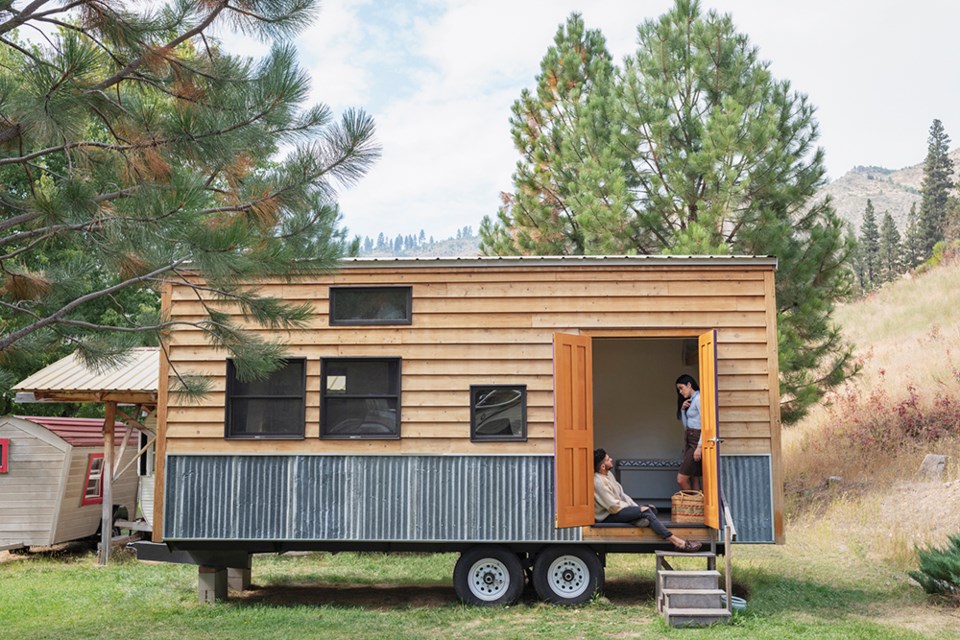Ask anyone about the past year’s housing market and you’re almost certain to hear stories of windfalls or dashed hopes.
The housing market is cooling down alongside the weather, but the boom is still echoing. In January 2020, the average home in qathet listed for nearly $300,000 – by March 2022, this had risen to more than $660,000.
Mortgage rates have nearly doubled already this year. Add to these realities the skyrocketing costs of building supplies – steel, electrical wiring and lumber in particular – and it’s enough to make a grown up tantrum.
There is an alternative to despair. These housing pressures are also inspiring folks to think outside the box, or in this case, the housing bubble. From carriage home rentals to downsizing to land sharing, rising costs are fuelling housing and renovation adaptations.
Those unable to buy homes in the current market are looking into alternative housing models, including co-housing – a type of intentional community where private homes are clustered around a shared space. Common assets such as gardens, shops, farming tools and meeting rooms mean reduced costs while potentially increasing quality of life.
Land shares are another option being tabled by those previously hesitant because of the need for clear agreements between landowners and challenges with selling later on. Local allowances for carriage homes are encouraging densification that may double as a mortgage helper. Renters are attracted to these detached tiny homes, which, ideally, rent for less.
Cooperative living arrangements and downsizing may be fuelled by our finances but they are also more in tune with what the planet can sustain. Increased cost of building materials also offers a silver lining for the earth.
Gently used or upcycled materials are generally cheaper and, as a bonus feature, more unique. Used building supply centres are a great asset to a community and the qathet region hopes to attract those interested in creating one.
In the meantime, informal means of exchange exist on social media and even curbsides. Larger facilities are often worth the ferry ride for the savings. Before getting too excited about your used building material scores, however, check in with local building permit allowances for their use.
Those embarking on retrofits that upgrade the energy efficiency of their home might be able to tap into a few grant opportunities. Canada Greener Homes Grant and Loan offers grants of up to $5,000 and interest-free loans of up to $40,000. Eligible retrofits include home insulation, windows and doors, air sealing and mechanical and renewable energy systems.
The Wood Stove Exchange Program is also available to residents of the qathet region who upgrade their main source of heat to an electric heat pump, EPA certified wood stove, pellet stove or electric fireplace insert. Learn if you qualify for a rebate of between $400 and $1,150 on qathet Regional District’s website (qathet.ca) and then begin the application process through Let’s Talk Trash.
Before rushing to renovate or relocate, asking whether this is even needed could save a lot of hassle. Around the globe, many live in smaller quarters and they have adapted their spaces to be multifunctional and even cozy. Hopping aboard a live-in boat might give you some ideas of how efficient a small space can be when it’s well designed.
Knowing the cost and time involved in building from scratch these days, some are turning to relocating homes otherwise destined for demolition. The phenomena is not new but is gaining in popularity, especially in waterfront towns where entire homes can be barged in from neighbouring islands.
Nickel Brothers has been offering this service since 1956, moving homes for a fraction of the cost to build from the ground up. The quality of construction and materials are often exceptional and the environmental benefits of reusing an entire home are clear.
The past few years have had us question the affordability of home ownership and renovation. The volatility of the housing and building supply markets could make us more willing to change how we home ourselves on this delicate planet. Maybe this hard road will lead us to being happy living with less while sharing more.
Let’s Talk Trash is contracted by qathet Regional District to offer its waste reduction education program. For more information, email [email protected] or go to LetsTalkTrash.ca.



